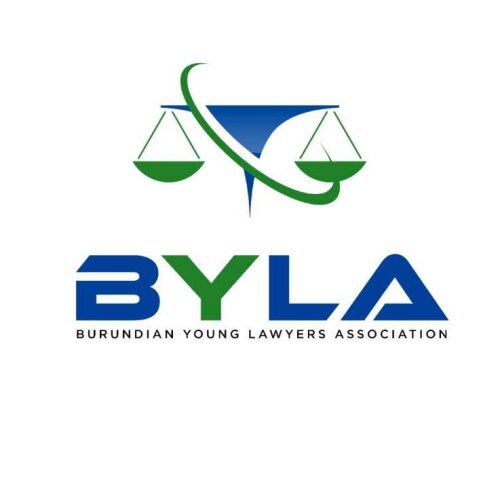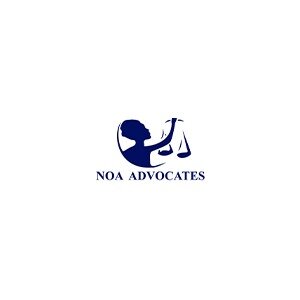Best Corporate & Commercial Lawyers in Burundi
Share your needs with us, get contacted by law firms.
Free. Takes 2 min.
Or refine your search by selecting a city:
List of the best lawyers in Burundi
About Corporate & Commercial Law in Burundi
Corporate and commercial law in Burundi refers to the set of legal rules and regulations that govern the formation, operation, and dissolution of businesses, as well as commercial transactions and activities. This area of law covers everything from the registration of companies and compliance issues to contractual matters and dispute resolution. It is designed to create a secure business environment, protect investments, and support fair trade practices. As the country continues opening up to international markets and investment, understanding corporate and commercial law is essential for entrepreneurs, investors, and business operators in Burundi.
Why You May Need a Lawyer
Navigating Burundi’s corporate and commercial landscape can be complex, especially for those unfamiliar with local laws and procedures. Common situations where legal help is necessary include:
- Establishing a business or registering a company with Burundian authorities
- Drafting, reviewing, or negotiating commercial contracts and agreements
- Addressing mergers, acquisitions, or business restructurings
- Handling disputes between business partners or other companies
- Complying with local regulations and corporate governance requirements
- Protecting intellectual property rights, such as trademarks and patents
- Dealing with labor or employment matters within a commercial context
- Resolving tax or financial compliance issues
- Ensuring adherence to foreign investment regulations
A qualified corporate and commercial lawyer in Burundi can guide you through these situations and help safeguard your interests.
Local Laws Overview
Corporate and commercial activities in Burundi are primarily regulated by the Organization for the Harmonization of Business Law in Africa (OHADA) Uniform Acts, along with local statutory provisions. Key aspects include:
- Company Formation: The OHADA Uniform Act provides the legal framework for forming different types of business entities, including limited liability companies, joint stock companies, partnerships, and branches of foreign companies.
- Registration and Compliance: All companies must be registered with the National Investment Promotion Agency (Agence de Promotion de l’Investissement, API) and included in the Trade and Personal Property Credit Register (RCCM).
- Corporate Governance: Companies must adhere to governance standards on management, annual meetings, and reporting. Directors’ duties and responsibilities are strictly regulated.
- Contracts: Commercial transactions should be documented in clear, written contracts and comply with general contract law principles outlined under OHADA.
- Dispute Resolution: Commercial disputes may be resolved through Burundian courts or arbitration. OHADA also provides arbitration guidelines for cross-border business disputes.
- Foreign Investment: There are no major restrictions on foreign investment, but certain sectors may require prior government approval or special permits.
- Labor and Employment: Companies must comply with Burundi’s Labor Code, which governs hiring, contracts, employee rights, and termination.
- Taxation: Businesses are subject to various taxes, including corporate income tax, value-added tax (VAT), and payroll taxes. Compliance with local tax laws is essential.
Staying up-to-date with local laws and OHADA regulations is crucial for business success in Burundi.
Frequently Asked Questions
What is the process for registering a company in Burundi?
Company registration involves submitting required documents to the National Investment Promotion Agency (API) and the RCCM, including articles of association, proof of identity for shareholders and directors, and the company’s address. The process is guided by OHADA Uniform Acts.
Can a foreigner own a business in Burundi?
Yes, foreigners can own and operate businesses in Burundi. However, certain sectors may have additional requirements or restrictions, and it is recommended to consult local authorities or legal experts for guidance.
What are the main types of business entities in Burundi?
The main legal forms are sole proprietorships, limited liability companies (SARL), public limited companies (SA), partnerships, and branches of foreign companies.
Do I need a written contract for commercial transactions?
While not all commercial transactions require written contracts, it is highly advisable to use written agreements to clearly outline the rights and obligations of each party and reduce the risk of disputes.
How are commercial disputes resolved in Burundi?
Disputes can be settled through Burundian courts or through arbitration. OHADA provides a framework for arbitration, especially in cases involving parties from other member states.
What are the key compliance obligations for companies?
Companies must file annual financial statements, hold regular shareholder meetings, update statutory information, and comply with local tax, labor, and regulatory requirements.
Are there any incentives for foreign investors?
Yes, Burundi offers investment incentives such as tax reductions and customs benefits through the National Investment Promotion Agency (API), particularly for investments that contribute to economic development.
How is intellectual property protected?
Intellectual property rights, including trademarks and patents, are protected under the African Intellectual Property Organization (OAPI), which Burundi is a member of. Registration is required for enforcement.
What taxes do companies have to pay?
Key taxes include corporate income tax, value-added tax (VAT), and payroll or social contributions. Tax rates and obligations may vary based on company size and sector.
Can a business hire expatriates in Burundi?
Yes, but hiring foreign workers usually requires work permits and must comply with local labor and immigration laws. Certain positions may require justification of skills not available locally.
Additional Resources
If you need more information or assistance, consider reaching out to the following organizations:
- National Investment Promotion Agency (Agence de Promotion de l’Investissement, API) - Business registration and investment support
- Trade and Personal Property Credit Register (Registre du Commerce et du Credit Mobilier, RCCM) - Company registration and records
- Burundi Revenue Authority (Office Burundais des Recettes) - Tax compliance and information
- OHADA Regional Office - Guidance on regional business laws and dispute resolution
- Chamber of Commerce and Industry of Burundi (Chambre Fédérale de Commerce et d’Industrie du Burundi) - Business networking and support
Next Steps
If you need legal assistance in corporate or commercial matters in Burundi, start by clearly outlining your business goals and the specific legal issues you face. Collect all relevant documents and information in advance. It is advisable to consult a qualified corporate and commercial lawyer who understands both local and OHADA laws. Ask for guidance on compliance, risk management, and how to ensure your business activities are legally sound. Consider contacting relevant governmental bodies or business support organizations for additional help as needed.
Remember, addressing potential legal concerns at an early stage can help prevent costly disputes and set a solid foundation for your business success in Burundi.
Lawzana helps you find the best lawyers and law firms in Burundi through a curated and pre-screened list of qualified legal professionals. Our platform offers rankings and detailed profiles of attorneys and law firms, allowing you to compare based on practice areas, including Corporate & Commercial, experience, and client feedback.
Each profile includes a description of the firm's areas of practice, client reviews, team members and partners, year of establishment, spoken languages, office locations, contact information, social media presence, and any published articles or resources. Most firms on our platform speak English and are experienced in both local and international legal matters.
Get a quote from top-rated law firms in Burundi — quickly, securely, and without unnecessary hassle.
Disclaimer:
The information provided on this page is for general informational purposes only and does not constitute legal advice. While we strive to ensure the accuracy and relevance of the content, legal information may change over time, and interpretations of the law can vary. You should always consult with a qualified legal professional for advice specific to your situation.
We disclaim all liability for actions taken or not taken based on the content of this page. If you believe any information is incorrect or outdated, please contact us, and we will review and update it where appropriate.
Browse corporate & commercial law firms by service in Burundi
Burundi Attorneys in related practice areas.
Browse corporate & commercial law firms by city in Burundi
Refine your search by selecting a city.












